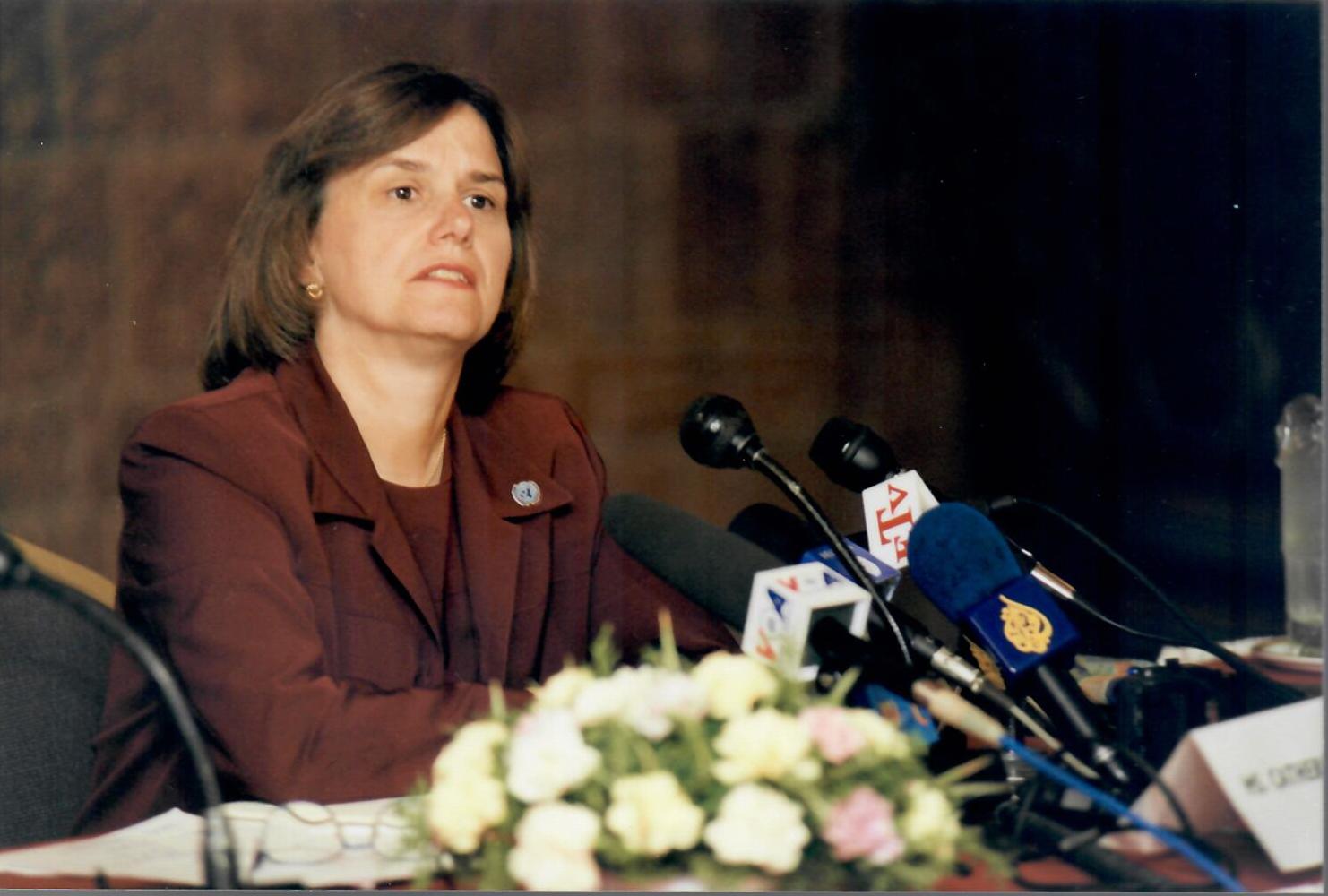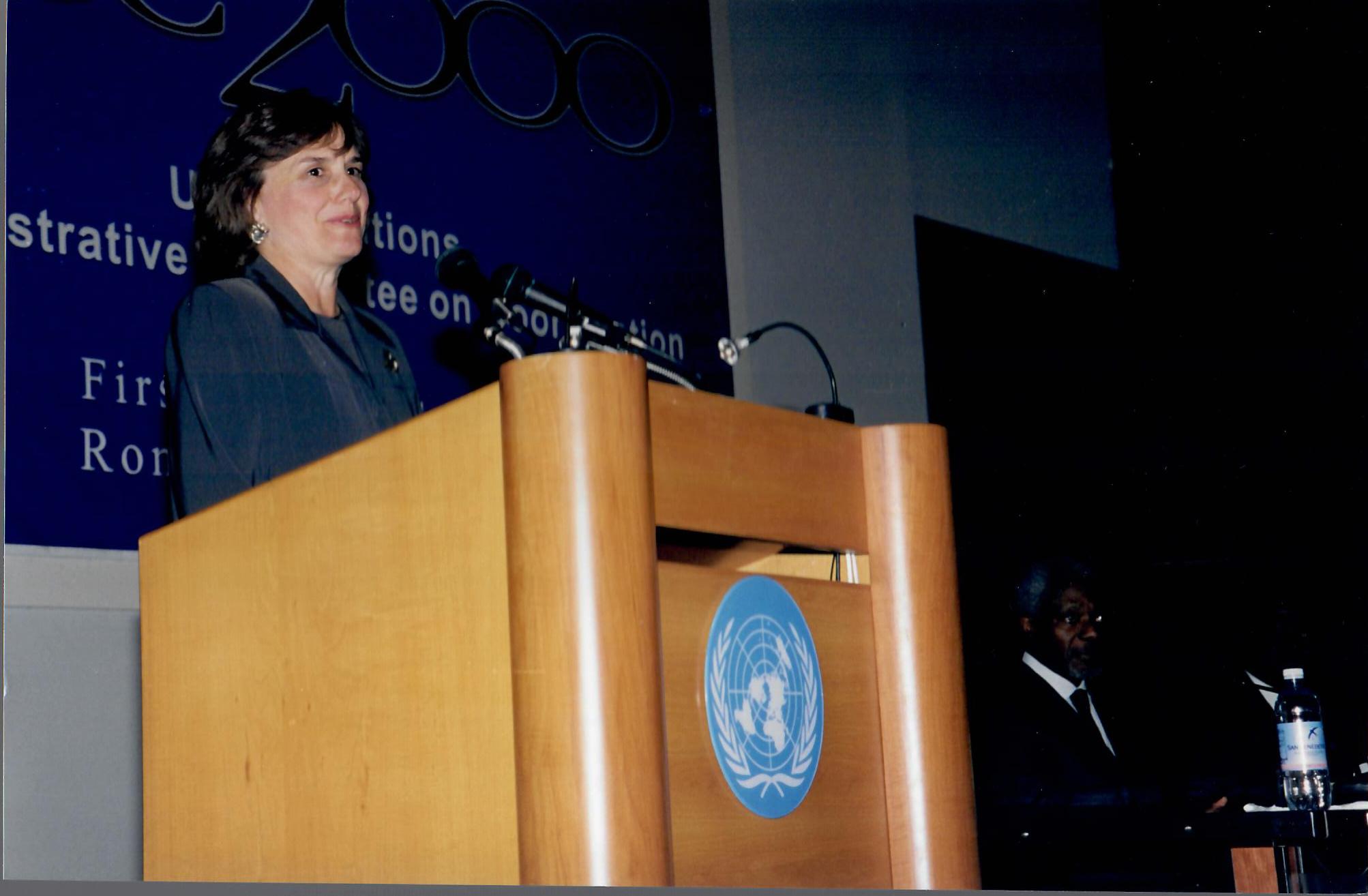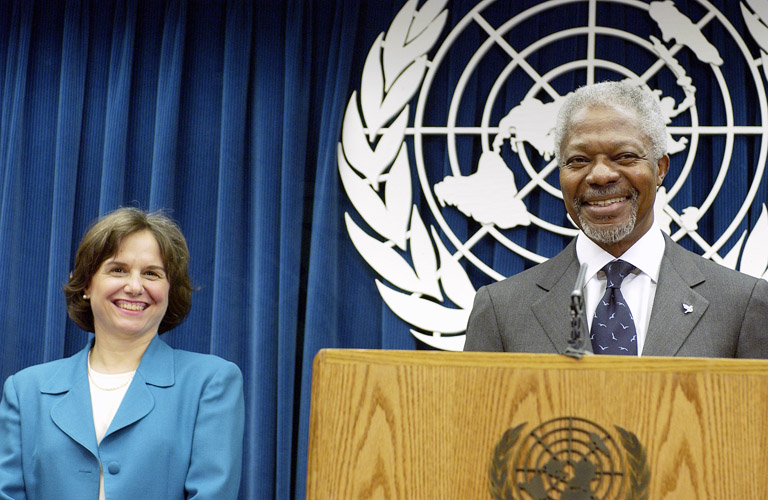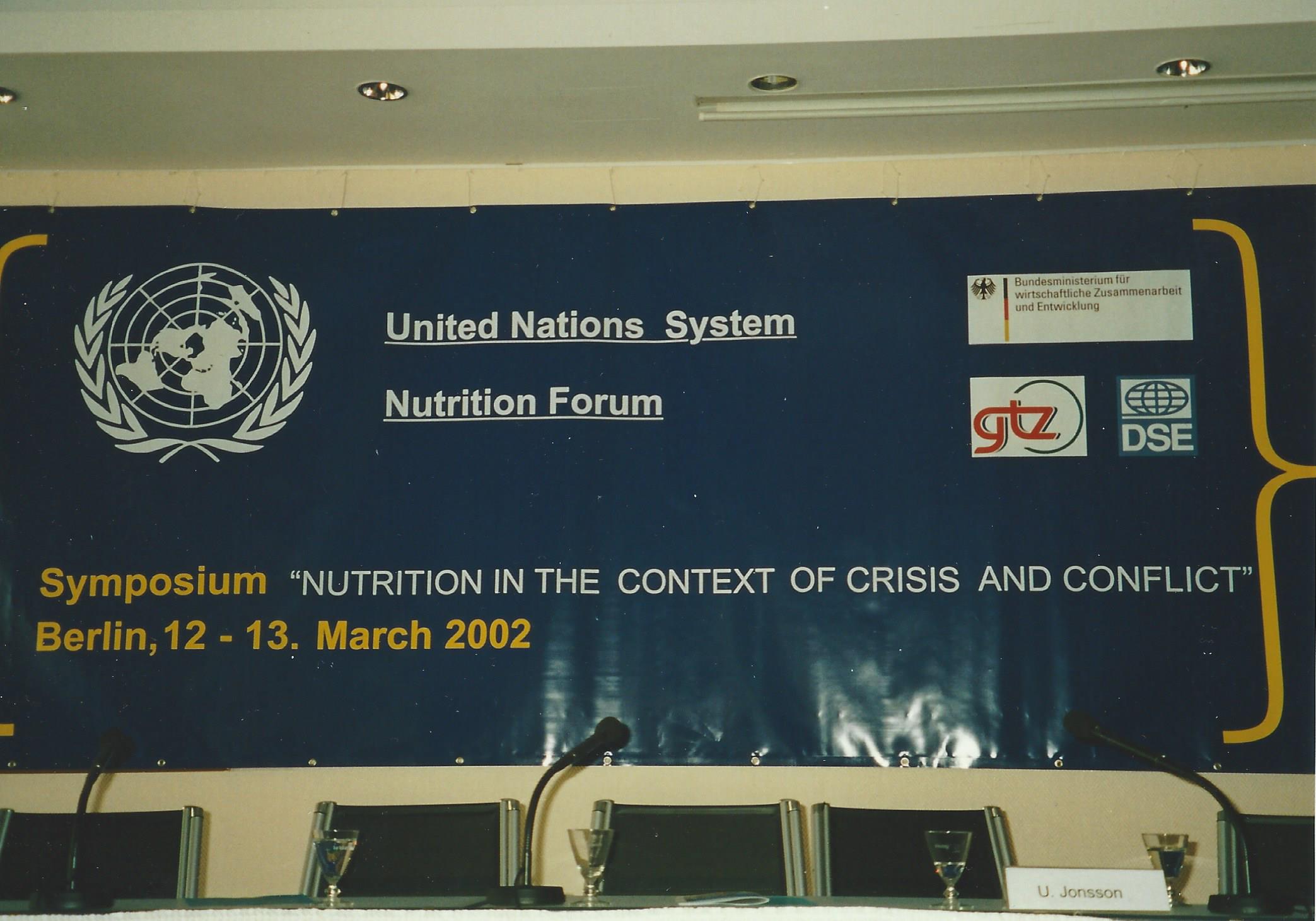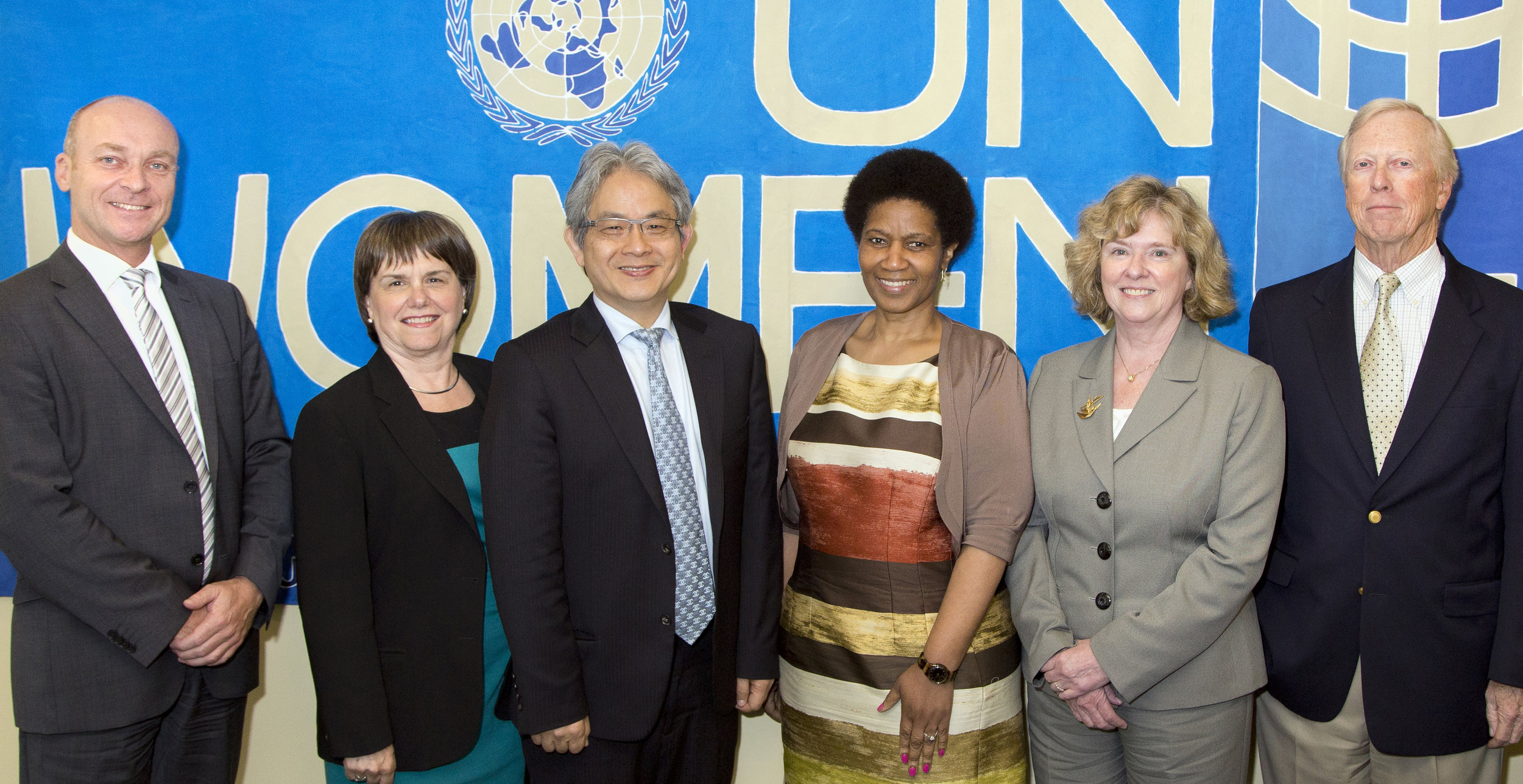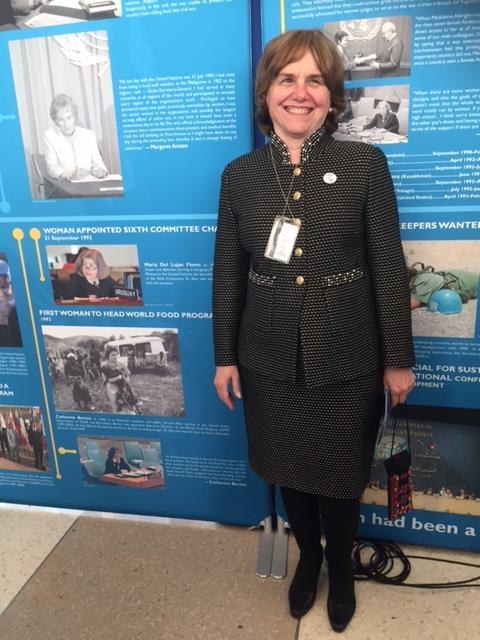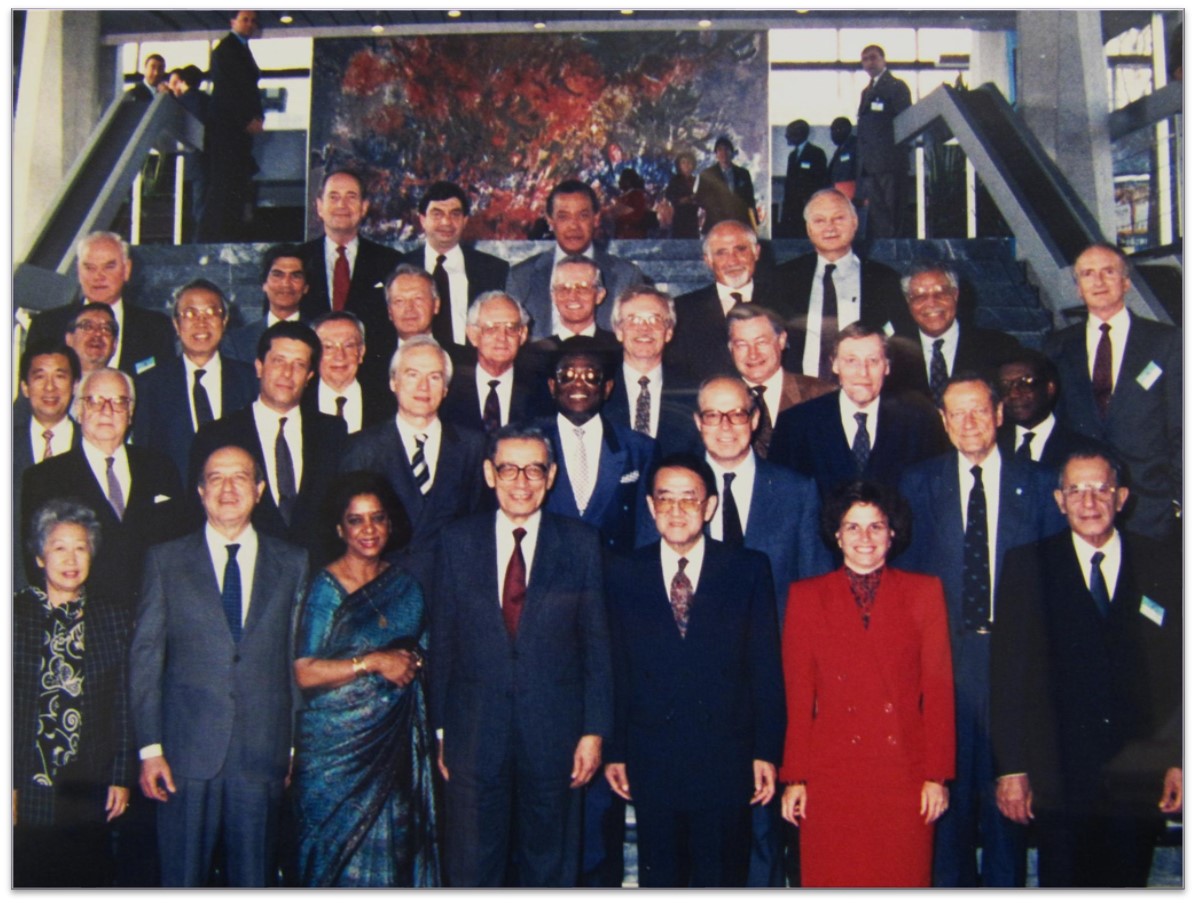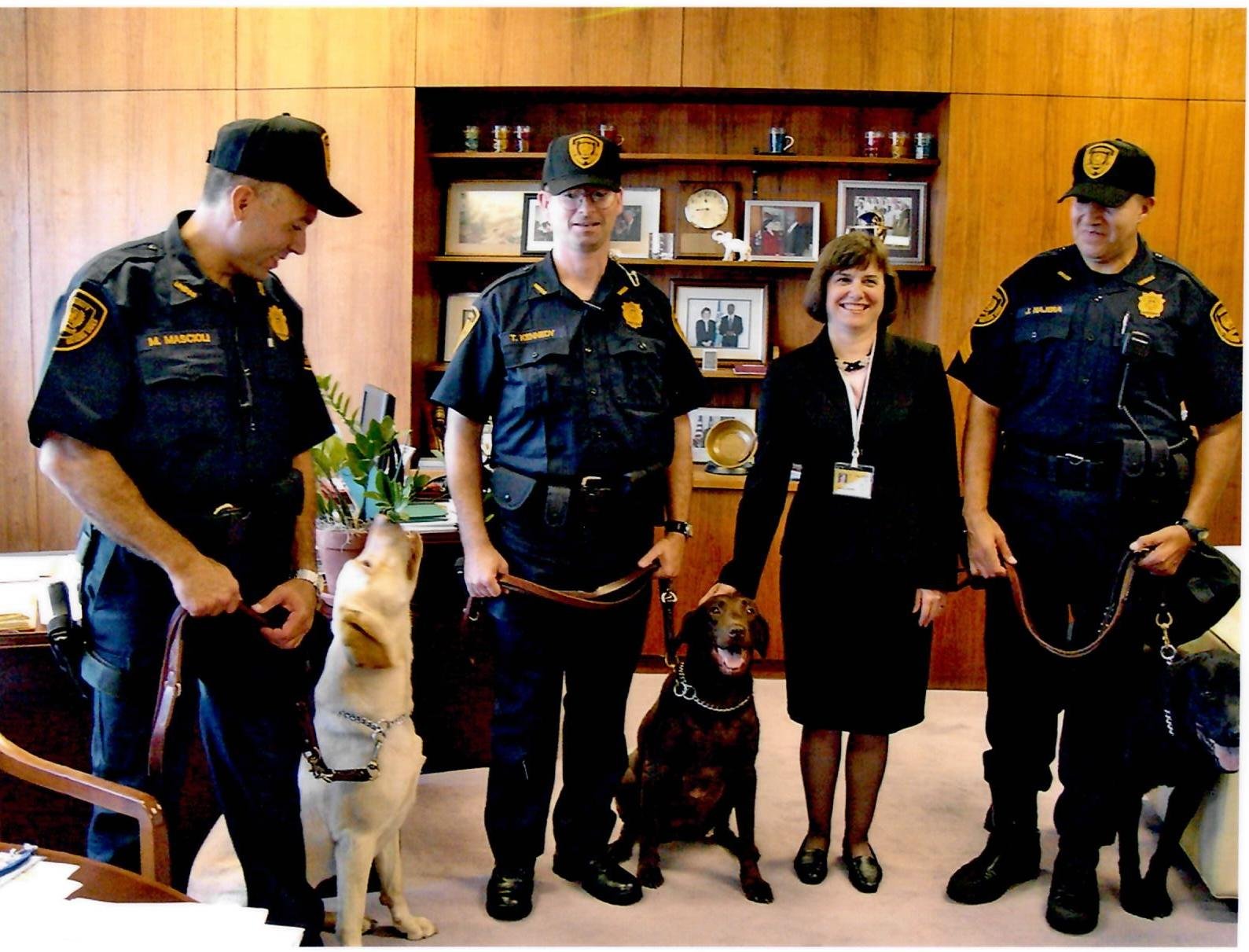United Nations
At the UN Secretariat, Catherine Bertini was responsible for administering the UN’s human, financial and physical resources and security of staff worldwide. She managed a $3 billion biennial budget, human resources support to 9,000 staff members, accounting, treasury, contributions, travel, information systems, purchasing, facilities management, building refurbishment, worldwide security system, and the $29 billion pension fund investment portfolio. She was appointed by Secretary General Kofi Annan as a member of the Secretary General’s cabinet and elected chair of the management committee of the UN Chief Executives’ Board.
Pictured Above: Catherine Bertini addressing the UN Security Council as Executive Director of WFP in 2002.
Under Secretary General for Management | 2003-2005
As the Under-Secretary-General for Management, Catherine Bertini supervised major reforms of the worldwide security management system, and mandated training for all UN staff. She displayed skills in crisis management, proactively following up to fatal bombing of UN Baghdad facility by providing repatriation, medical care, and family support. She was also responsible for arranging the return of UN staff to Iraq, negotiating with US military, recruiting dedicated security support, and securing new facilities.
Accomplishments include:
Established a whistle blower policy
Initiated a more robust financial disclosure program for senior staff
Reformed spousal benefit plan to include all recognized marriages and partnerships
Increased pension fund investment portfolio by 36%; reorganized management of fund investments
Established key funding mechanisms for the UN Secretariat renovation plans
Proposed enhanced UN staff security department; it was approved by the General Assembly
UN agency heads (left to right): Carol Bellamy UNICEF, Carolyn McAskie OCHA. Dr. Nafis Sadik UNFPA, Sadako Ogata UNHCR, Louise Frechette Deputy Secretary General, Gro Harlem Brundtland WHO, Mary Robinson UNHCHR, Catherine Bertini WFP.
Other Major Accomplishments
Elected Chair, UN System Standing Committee on Nutrition
From August 2002 to August 2006, Catherine Bertini provided leadership to UN agencies, many NGOs and national governments on making nutrition a priority in their policy and implementing work.
Accomplishments:
Created a mechanism to include the private sector in nutrition deliberations with UN, governments, NGOs and academia
Lead the development of a new strategic framework
Strengthened major UN organizations' commitments to nutrition in this 4-year period (World Bank, UNICEF, FAO, UNHCR, WHO, WFP)
Personal Humanitarian Envoy of the Secretary-General
In August 2002, Catherine Bertini traveled to Israel and the Palestinian Territories to assess humanitarian needs of people living in Gaza and the West Bank. She negotiated changes with senior leadership and made recommendations to the Secretary General which the authorities in the region agreed to implement. View Report.
Special Envoy for the Drought in the Horn of Africa
From March 2000 to December 2001, Catherine Bertini traveled through the region, meeting with heads of state, UN agencies, NGOs, village leadership, general public, and donors, in a successful effort to assess people's needs, insure coordinated effort, raise awareness and resources and implement effective programs to protect populations from negative consequences of drought. View Report.
LEADING CHANGE IN UN ORGANIZATIONS
The Chicago Council on Global Affairs | View Here
Preview: This paper provides guidance for new leaders through various stages of the early days of UN leadership; from preparations made upon appointment to the position to the first 100 days in office and finally through the assessment, planning, and implementation of transformational organizational change. It was written with input from many former and current senior UN leaders in hopes of providing valuable advice, insight, and lessons learned that can be used by new leaders as they embark on their challenging and rewarding mission to change lives and change the world.


